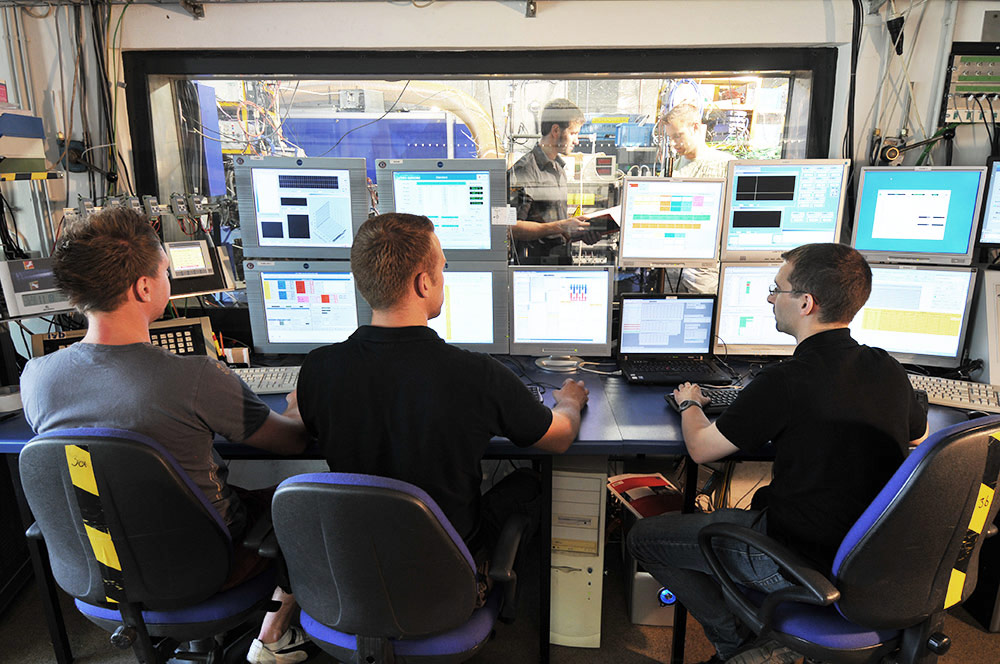
| Degree | Bachelor of Science |
|---|---|
| Standard duration of study | 6 semesters |
| Language of instruction | German |
| Start of programme | winter and summer semester |
| Admission | free admission |
In the age of energy transition, innovative energy solutions are crucial, and in the future these will increasingly be electrical. As an electrical engineering and information technology student specialising in "Energy Systems and Drive Technology", you will dive deep into the world of modern electrical systems, both stationary and in mobile applications such as land, water and air vehicles.
Learn how electricity is efficiently generated, transmitted and used. Topics covered include electric motors, the latest energy storage devices, power electronic components, stationary power grids and on-board power systems, as well as energy management and control technology.
Start your career with us where experts are most needed today and in the future - at the heart of the sustainable energy transition!
As a student, you will start with introductory lectures and tutorials in mathematics and electrical engineering and information technology. You will get to know your fellow students and university life, immerse yourself in the specialist subjects of electrical engineering and information technology and gain practical insights into the world of engineering from the outset.
Interesting work placements in the laboratories of electrical engineering and information technology research institutes will help you to learn more about the further study options available to you. You will be supported by our mentoring programme. The wide range of activities organised by our faculty and student groups will help you to make your studies as smooth and interesting as possible.
Throughout your studies you will have many opportunities to develop and deepen your knowledge of electrical engineering systems. Drives, power electronics and power networks require components, circuits and system structures that our students can create through practical work in a wide range of laboratories.
The practical implementation allows you to understand and deepen theoretical knowledge in experiments or even discover something new. Successes such as "Ah, the circuit works!" motivate and increase the learning effect.
Our faculty works with a wide range of partners in academia and industry. Current research topics are integrated into teaching in such a way that you can be sure that you are equipped to deal with future-oriented issues after graduation.
Contacts with numerous industrial partners in Germany can often be established during your studies. Alternatively, the programme offers you the opportunity to pursue an academic career with the possibility of doctoral studies at a later stage, for example at an institute of TU Braunschweig.
You will need a formal university entrance qualification to apply for the programme. If you do not have the German Abitur, you can check our summary [in German only] to find out which degree programmes are available to you depending on your educational background.